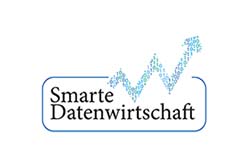Pay-per-Stress
Utilization-orientated, data-based payment models in mechanical engineering
silja.wunderlich@pro-micron.deApplication industry: Production
Technology area: Block chain/distributed ledger technology; (mathematical) optimization and planning, data and service management
The Pay-per-Stress project is researching payment models for machine tools which – unlike conventional leasing models – are based on actual machine utilization. The solution uses methods of artificial intelligence (AI) and blockchain technology to develop a transparent, traceable, and legally compliant business model.
The baseline
The high costs of purchasing complex machines is a major financial challenge, especially for small and medium-sized companies in the manufacturing industry. Leasing models are one way to keep investment costs low. In the conventional leasing model, however, customers and suppliers have conflicting interests: The lessee pays by time and thus has the incentive to maximize productivity through machine utilization. However, continuous high utilization or overload can damage the machine. The lessor must, therefore, include a risk premium, which increases costs.
The project goal
To eliminate the disadvantages of conventional leasing models, the project is developing pay-per-stress payment models based on actual machine tool utilization. The real stress data is analysed using artificial intelligence (AI) methods and summarized in a stress factor. This stress factor is the financial valuation unit for the pay-per-stress approach and forms the basis for billing. Based on the utilization data and the stress factor, statements can also be made regarding the maintenance requirements of the machine, or machine operations can be optimized. Blockchain technology enables the manipulation-proof and traceable sharing of all stakeholders’ data across company boundaries.
Application and practical benefit
Pay-per-Stress is creating new payment models that eliminate the weaknesses of previous leasing models. Both the lessee and the lessor benefit from cost savings. At the same time, machine users obtain valuable data to optimize machine operations, and machine manufacturers obtain important information to minimize machine wear, which in turn benefits machine users.
Term: 1 August 2019 to 31 July 2022
Consortium: pro-micron GmbH (lead member), DECKEL MAHO Pfronten GmbH, Alois Berger GmbH & Co. Präzisions-Maschinenbauteile KG, F. Zimmermann GmbH, PTW Technical University of Darmstadt, EBS Universität für Wirtschaft und Recht Wiesbaden
Contact:
Silja Wunderlich
pro-micron GmbH
E-Mail: silja.wunderlich@pro-micron.de
Website: www.pay-per-stress.de
- Recommend this page:
- Print view
